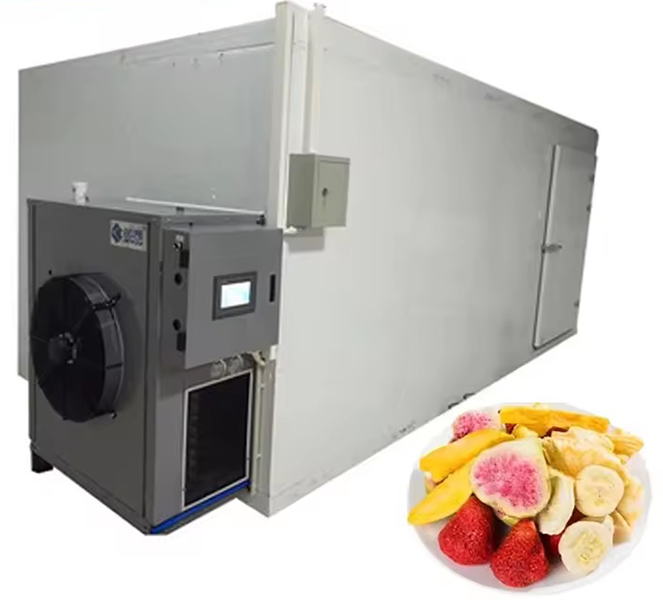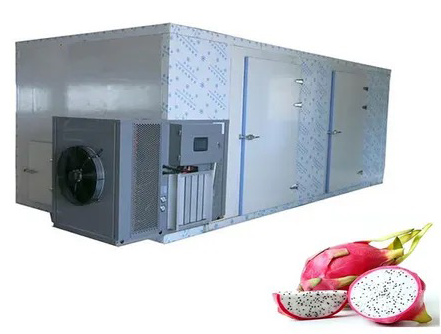
Content Menu
● Understanding Condenser Dryers with Heat Pump Technology
>> How Does It Work?
● Advantages of Using a Heat Pump Dryer in Singapore
● Applications in Food Drying
>> Benefits of Food Drying with Heat Pump Technology
● Types of Food Dryers Available
● Key Features to Look for in Food Dryers
● Practical Considerations for Using Heat Pump Dryers
● Environmental Impact and Sustainability
>> Energy Consumption Comparison
● Cost Considerations
● Conclusion
● FAQs
>> 1. What is the difference between a heat pump dryer and a traditional condenser dryer?
>> 2. Can I use a heat pump dryer for food drying?
>> 3. How much energy does a heat pump dryer save compared to conventional dryers?
>> 4. What types of foods can be dried using a heat pump dehydrator?
>> 5. Are heat pump dryers suitable for small apartments?
● Citations:
In the tropical climate of Singapore, characterized by high humidity and warm temperatures year-round, the choice of household appliances can significantly impact comfort and efficiency. One appliance that has gained popularity in recent years is the condenser dryer with heat pump technology. This article delves into the workings, advantages, and suitability of these dryers for Singapore's unique climate, particularly focusing on their application in food drying processes.

Understanding Condenser Dryers with Heat Pump Technology
A condenser dryer operates by using a closed-loop system to dry clothes. Unlike traditional dryers that vent hot air outside, condenser dryers collect moisture from the air within the drum and condense it into water, which is either drained away or collected in a reservoir.
Heat pump technology enhances this process by reusing hot air within the dryer. It circulates warm air through the drum, extracting moisture from the clothes while maintaining a lower temperature than conventional dryers. This not only saves energy but also protects delicate fabrics from damage due to high heat.
How Does It Work?
1. Air Circulation: Warm air is blown into the drum where it absorbs moisture from the clothes.
2. Moisture Condensation: The humid air is then passed through a heat exchanger, where it cools down, causing moisture to condense into water.
3. Heat Reuse: The cooled air is reheated and cycled back into the drum, making the process energy-efficient.
Advantages of Using a Heat Pump Dryer in Singapore
Given Singapore's humid climate, heat pump dryers offer several advantages:
- Energy Efficiency: Heat pump dryers consume up to 50% less electricity compared to traditional vented dryers. This is crucial in Singapore, where electricity costs can be high due to constant usage of cooling systems.
- Gentle Drying: The lower drying temperatures (around 50°C) prevent fabric shrinkage and damage, making it ideal for delicate clothing and textiles.
- Space-Saving Design: These dryers do not require external venting, allowing for flexible installation options in apartments or homes with limited space.
- Reduced Humidity: By condensing moisture internally, these dryers help maintain lower humidity levels in living spaces, enhancing overall comfort.
Applications in Food Drying
In addition to laundry, heat pump technology can be effectively utilized in food drying processes. Food dehydrators designed with similar principles can maintain optimal drying conditions without compromising the quality of the food.
Benefits of Food Drying with Heat Pump Technology
- Nutrient Preservation: Heat pump dehydrators operate at lower temperatures, preserving vitamins and minerals that are often lost during high-temperature drying methods.
- Uniform Drying: The controlled environment ensures that food items dry evenly, reducing the risk of spoilage or uneven texture.
- Versatility: Suitable for a variety of foods including fruits, vegetables, meats, and herbs.
Types of Food Dryers Available
1. Convection Dryers: Use hot air to remove moisture.
2. Microwave Dryers: Utilize microwave energy for rapid drying.
3. Heat Pump Dryers: Combine energy efficiency with gentle drying capabilities.
Key Features to Look for in Food Dryers
When selecting a food dryer suitable for Singapore's climate, consider the following features:
- Temperature Control: Adjustable settings allow for optimal drying conditions based on food type.
- Humidity Control: Effective humidity management prevents spoilage during the drying process.
- Energy Efficiency Ratings: Look for models that minimize energy consumption while maximizing performance.
Practical Considerations for Using Heat Pump Dryers
When using heat pump dryers in Singapore's humid environment, there are several practical considerations to keep in mind:
- Regular Maintenance: To ensure optimal performance and longevity of your dryer, regular maintenance is essential. This includes cleaning lint filters and checking drainage systems to prevent blockages.
- Optimal Loading Practices: Avoid overloading your dryer as this can impede airflow and reduce drying efficiency. It's best to follow manufacturer guidelines on load sizes.
- Placement of Dryer: Position your dryer in a well-ventilated area to enhance its performance. While heat pump dryers do not require external venting, good airflow can help maintain efficiency.

Environmental Impact and Sustainability
Using a heat pump dryer contributes positively to environmental sustainability. By consuming less energy than traditional dryers, they reduce carbon footprints associated with electricity generation. Furthermore, their ability to preserve food nutrients through efficient drying processes aligns with sustainable food practices by minimizing waste and maximizing resource use.
Energy Consumption Comparison
To illustrate the energy efficiency of heat pump dryers compared to conventional models:
| Type of Dryer | Average Energy Consumption (kWh per cycle) |
| Traditional Vented Dryer | 4 - 5 kWh |
| Traditional Condenser Dryer | 3 - 4 kWh |
| Heat Pump Dryer | 1 - 2 kWh |
This table highlights how heat pump dryers can significantly reduce energy consumption per cycle, making them an eco-friendly choice for households.
Cost Considerations
While heat pump dryers may have a higher initial purchase price compared to traditional models, their long-term savings on energy bills often outweigh these costs. Additionally, many manufacturers offer warranties and service plans that provide peace of mind regarding maintenance and repairs.
Conclusion
In conclusion, a condenser dryer with heat pump technology is highly suitable for Singapore's humid climate. Its energy-efficient operation not only reduces electricity bills but also provides gentle care for fabrics and food items alike. The versatility of these dryers makes them an excellent choice for households looking to optimize their laundry processes while also exploring food preservation methods.
The integration of heat pump technology into both laundry and food drying applications represents a significant advancement in appliance efficiency and functionality. As consumers become more aware of sustainability issues and seek ways to reduce their environmental impact, heat pump dryers stand out as an ideal solution that meets both practical needs and ecological considerations.

FAQs
1. What is the difference between a heat pump dryer and a traditional condenser dryer?
A heat pump dryer recycles hot air within a closed system to dry clothes at lower temperatures, while a traditional condenser dryer uses higher temperatures and expels warm air outside.
2. Can I use a heat pump dryer for food drying?
Yes, heat pump technology is effective for food drying as it preserves nutrients and ensures even drying without overheating.
3. How much energy does a heat pump dryer save compared to conventional dryers?
Heat pump dryers can save up to 50% more energy than traditional vented or condenser dryers due to their efficient recycling of hot air.
4. What types of foods can be dried using a heat pump dehydrator?
You can dry various foods including fruits (like apples and mangoes), vegetables (such as carrots and spinach), meats (like jerky), and herbs.
5. Are heat pump dryers suitable for small apartments?
Yes, heat pump dryers are ideal for small apartments as they do not require external venting and can be installed in tight spaces.
Citations:
[1] https://aradmachineryco.com/article/How-to-make-a-food-dehydrator
[2] http://www.ijstr.org/final-print/jan2021/Conventional-And-Advanced-Food-drying-Technology-A-Current-Review.pdf
[3] https://www.made-in-china.com/manufacturers/top-food-dehydrators.html
[4] https://www.bosch-home.com.sg/highlights/heatpumpdryer101
[5] https://www.siemens-home.bsh-group.com.hk/en/appliances/laundrycare/tumble-dryers/comparison-heat-pump-dryer-condenser-dryer
[6] https://www.bxdrymachine.com/food-drying-machine.html
[7] https://www.fox-foodprocessinginabox.eu/drying-technologies/
[8] https://ybhomestore.com.sg/different-types-of-clothes-dryer-explained-which-one-is-right-for-you/
[9] https://blissbies.com/sg/blog/best-dryers-singapore/
[10] https://www.bosch-home.com.sg/experience-bosch/living-with-bosch/fresh-reads/6-reasons-why-you-need-a-bosch-heat-pump-dryer-in-your-life











